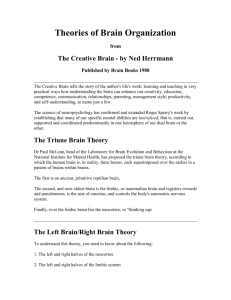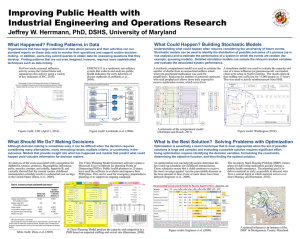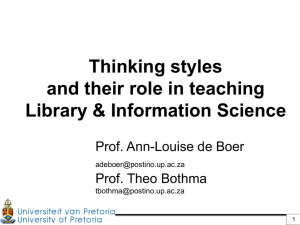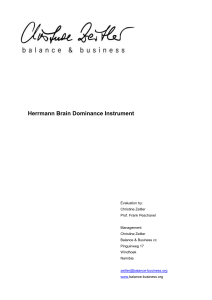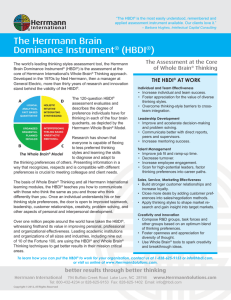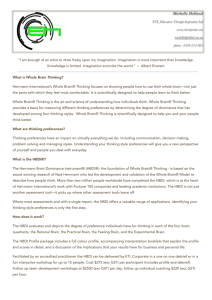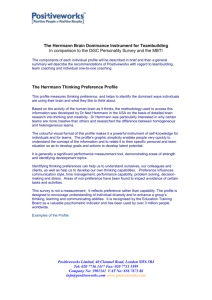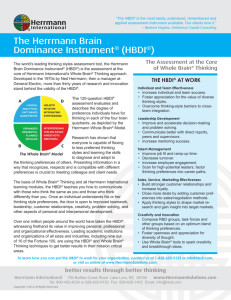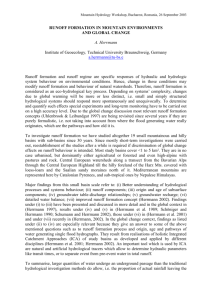Right and left brain thinking
advertisement
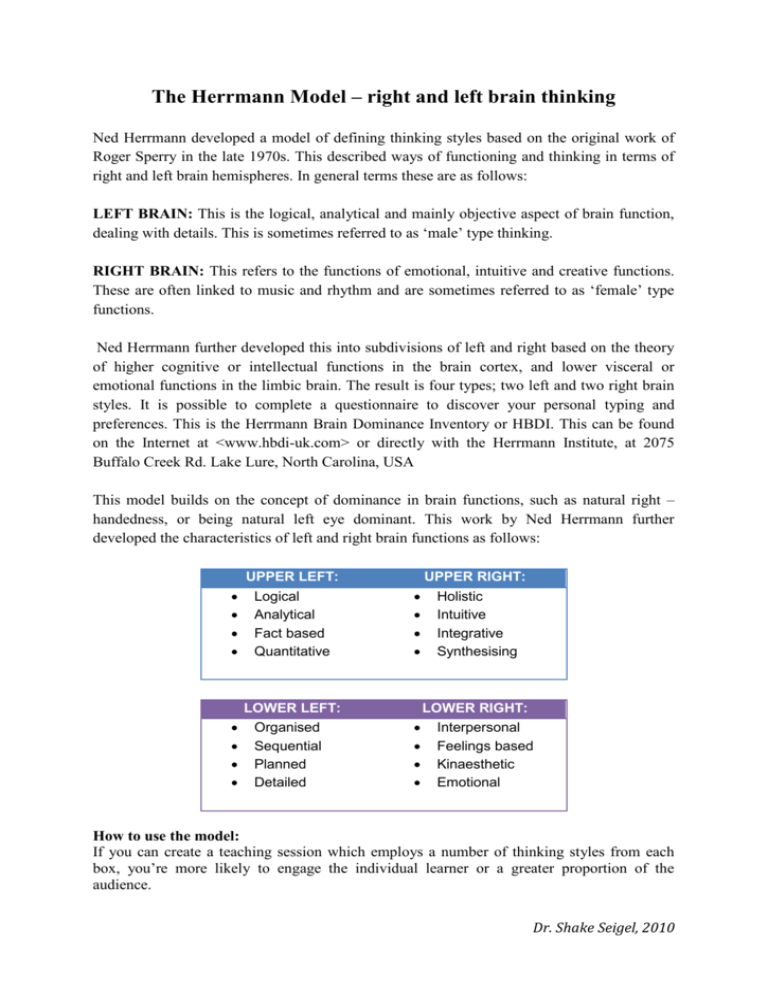
The Herrmann Model – right and left brain thinking Ned Herrmann developed a model of defining thinking styles based on the original work of Roger Sperry in the late 1970s. This described ways of functioning and thinking in terms of right and left brain hemispheres. In general terms these are as follows: LEFT BRAIN: This is the logical, analytical and mainly objective aspect of brain function, dealing with details. This is sometimes referred to as ‘male’ type thinking. RIGHT BRAIN: This refers to the functions of emotional, intuitive and creative functions. These are often linked to music and rhythm and are sometimes referred to as ‘female’ type functions. Ned Herrmann further developed this into subdivisions of left and right based on the theory of higher cognitive or intellectual functions in the brain cortex, and lower visceral or emotional functions in the limbic brain. The result is four types; two left and two right brain styles. It is possible to complete a questionnaire to discover your personal typing and preferences. This is the Herrmann Brain Dominance Inventory or HBDI. This can be found on the Internet at <www.hbdi-uk.com> or directly with the Herrmann Institute, at 2075 Buffalo Creek Rd. Lake Lure, North Carolina, USA This model builds on the concept of dominance in brain functions, such as natural right – handedness, or being natural left eye dominant. This work by Ned Herrmann further developed the characteristics of left and right brain functions as follows: UPPER LEFT: Logical Analytical Fact based Quantitative UPPER RIGHT: LOWER LEFT: Organised Sequential Planned Detailed Holistic Intuitive Integrative Synthesising LOWER RIGHT: Interpersonal Feelings based Kinaesthetic Emotional How to use the model: If you can create a teaching session which employs a number of thinking styles from each box, you’re more likely to engage the individual learner or a greater proportion of the audience. Dr. Shake Seigel, 2010

